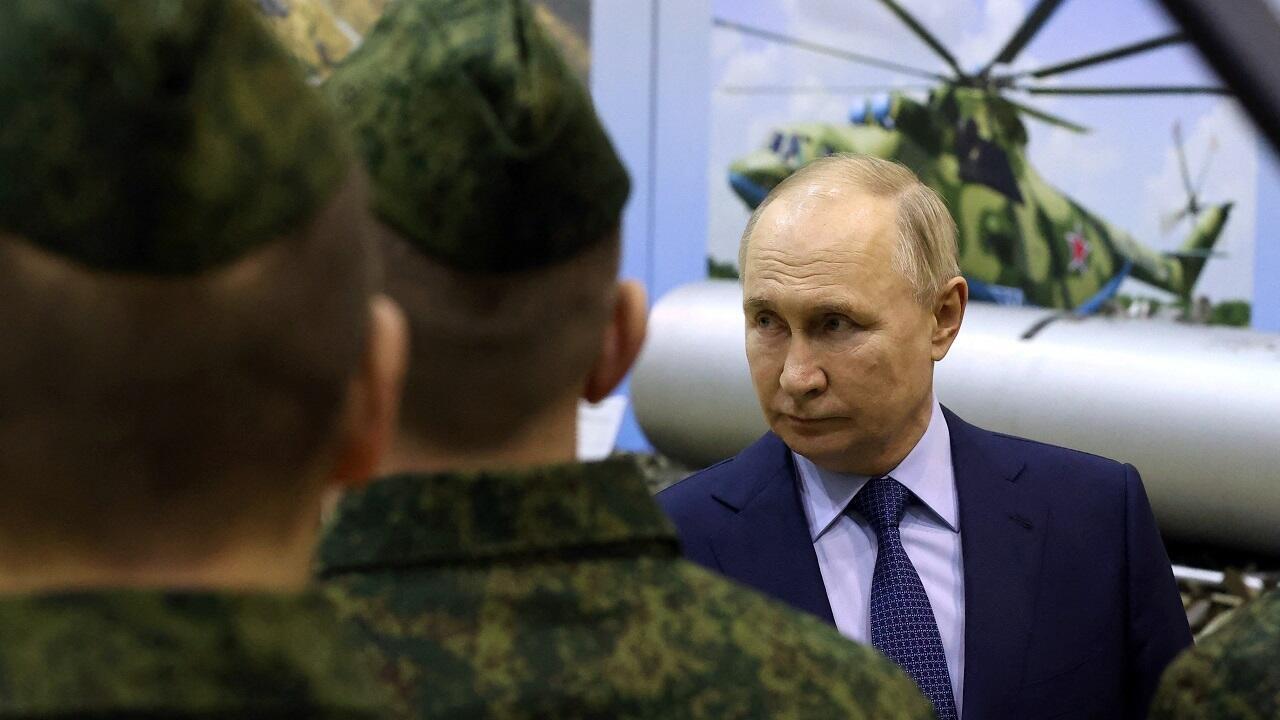Moscow announces mandatory conscription in the fall of 2025 and accuses foreign entities of disinformation campaigns

Russian authorities announced on Monday a series of measures and decisions on both domestic and foreign fronts, at a time when the confrontation with Ukraine is witnessing a new escalation in Western rhetoric.
Russian President Vladimir Putin signed a decree mandating the conscription of Russian citizens from October 1 to December 31, 2025. The decree was published on the official legal information portal.
The decree stipulates that "mandatory conscription will apply from October 1 to December 31, 2025, for Russian citizens aged 18 to 30 who are not in reserve, totaling 135,000 people." The decree also provides for the discharge of military personnel whose service has ended.
In a related context, the Russian Security Council revealed accusations against foreign entities for employing opposition organizations domestically. The council stated in its announcement: "Foreign entities are actively utilizing the capabilities of liberal, nationalist, and other organizations to disseminate provocative materials aimed at destabilizing and manipulating public opinion, and sowing discord in society. It pays special attention to cases of deliberately publishing unreliable information that distorts the image of Russia's domestic and foreign policies."
For her part, the official spokesperson for the Russian Foreign Ministry, Maria Zakharova, commented on the global media landscape, stating that Western countries "are exposing the global media space to the risk of fragmentation in their attempt to eradicate any manifestation of dissenting opinion." She emphasized that the governments of Western countries "will not be able to forever shield themselves from uncomfortable truths, and people will continue to find ways to breach the walls in the information realm."
This comes at a time when American statements regarding the war in Ukraine are increasing. The U.S. envoy to Ukraine, Keith Kellogg, stated in remarks to Fox News on Sunday that Ukraine striking deep into Russia with American weapons is a "plausible hypothesis."
In response to a question about whether U.S. President Donald Trump allowed Ukraine to use long-range missiles against Russia, Kellogg said: "Based on what Donald Trump, Vice President JD Vance, and Secretary of State Marco Rubio have said, the answer is yes." He added: "They used the capabilities to strike deep. There are no impregnable fortresses."
For his part, U.S. Vice President JD Vance, in separate remarks to Fox News, stated that Washington is considering the sale of long-range Tomahawk missiles to Europeans for delivery to Ukraine. Vance stated: "As President Trump said, we are discussing the matter," noting that Washington is looking into "a number of European requests" and the president will make "the final decision in the best interest of the United States."
Moscow quickly moved to downplay these statements. Kremlin spokesman Dmitry Peskov said during a press briefing on Monday: "There is no antidote capable of resolving the situation on the front for the Kyiv regime. There is no magic weapon, whether it be Tomahawk missiles or other missiles. They change nothing."
These American statements seem to reflect a shift in stance, after President Trump said last week that Ukraine could regain all its territory from Russia "and even beyond that," modifying previous statements where he referred to the possibility of Kyiv conceding some of its territory. His deputy, Vance, stated that Trump's patience with Moscow is running thin, while Secretary of State Marco Rubio called on his Russian counterpart to stop what he described as the "slaughter" in Ukraine.